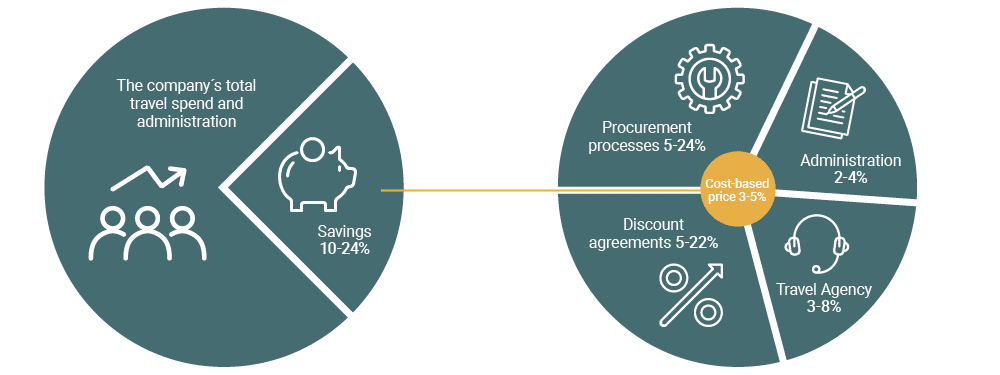Business expense tracking
Managing business expenses effectively is a cornerstone of successful financial operations, and tracking them is one of the most critical aspects. Business expense tracking is recording costs and involves real-time monitoring, policy enforcement, and data analysis to ensure accountability and optimize spending. Whether it’s daily travel costs, project-specific expenditures, or monthly operational expenses, businesses must track their spending to maintain transparency, compliance, and financial health. This guide dives deep into the strategies, tools, and best practices that make business expense tracking efficient and impactful.

End-to-end travel sourcing and expense management made simple

Proper expense tracking is essential for financial accountability, compliance, and optimization. Without a robust tracking system, businesses risk overspending, fraud, and misaligned budgets. Here’s why it’s crucial:
Despite its importance, expense tracking often faces several challenges. Common issues include lack of standardization, manual processes, and delayed reporting. These challenges can result in inefficiencies, inaccurate financial data, and compliance risks.
| Challenge | Impact | Solution |
|---|---|---|
| Manual Tracking | Errors, delays, and inefficiencies | Automate with expense tracking software |
| Lack of Real-Time Monitoring | Overspending and missed opportunities | Integrate real-time tracking tools |
| Policy Non-Compliance | Fraudulent or unapproved expenses | Enforce clear policies with automation |
| Delayed Reporting | Inaccurate financial records | Use mobile apps for instant submissions |
Technology has revolutionized expense tracking, enabling businesses to monitor and manage their finances with precision. Advanced tools provide real-time data, automate reporting, and integrate seamlessly with accounting systems. Features like mobile apps, cloud storage, and AI-powered analytics simplify the process and ensure accuracy.
To maximize the efficiency of expense tracking, organizations should adopt best practices tailored to their operations. These include:
Aligning expense tracking systems with corporate policies ensures consistency, compliance, and accountability. Organizations should embed tracking mechanisms into their financial workflows to enforce policies seamlessly. Automated tools help flag non-compliant expenses in real time, reducing manual intervention and potential errors.
Real-time tracking provides instant visibility into spending, enabling businesses to respond quickly to budget deviations. Mobile apps and cloud-based systems allow employees to log expenses immediately, while managers can access dashboards to monitor overall spending. This approach reduces delays and enhances financial decision-making.
As remote and hybrid work models become more prevalent, tracking business expenses for dispersed teams presents unique challenges. Digital tools allow employees to submit expenses from anywhere, while centralized systems consolidate data for seamless oversight. Organizations must adapt their policies and systems to address the complexities of modern work arrangements.
Beyond tracking, expense data offers valuable insights into spending patterns and areas for cost optimization. Advanced analytics can identify trends, highlight inefficiencies, and inform future budgets. Businesses that leverage this data gain a competitive edge by aligning their spending with strategic objectives.
The future of expense tracking lies in AI and machine learning, which promise to make tracking more intelligent and automated. Predictive analytics, blockchain for secure expense verification, and enhanced mobile capabilities are among the innovations reshaping this domain. Staying ahead of these trends will enable businesses to manage expenses more efficiently.






End-to-end travel sourcing and expense management made simple
